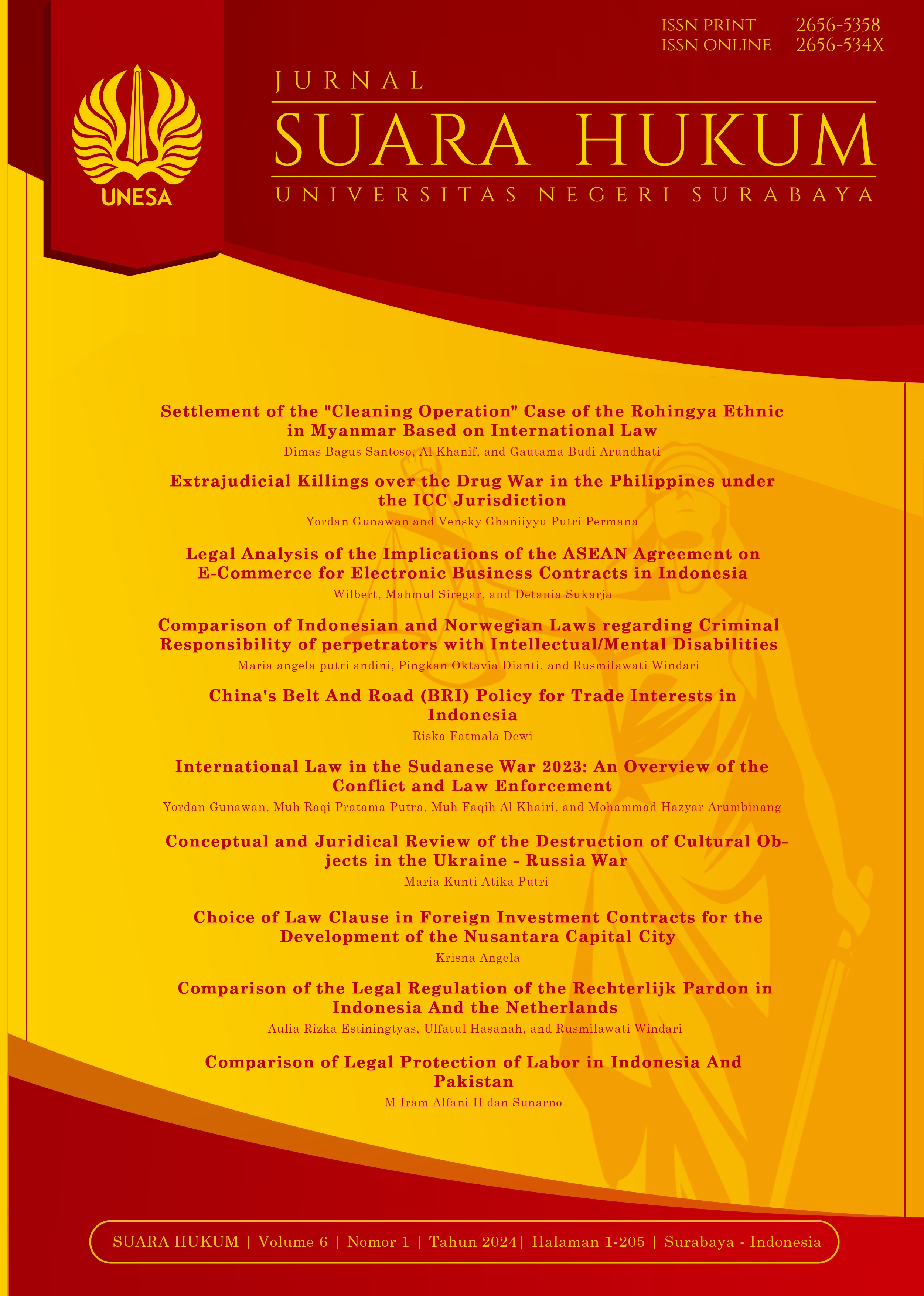Extrajudicial Killings over the Drug War in the Philippines under the ICC Jurisdiction
DOI:
https://doi.org/10.26740/jsh.v6n1.p31-47Abstract
Extrajudicial killings in the Philippines have escalated, resulting in severe human rights violations exacerbated by the enforcement of drug war policies, which have led to numerous deaths without due legal process. These killings constitute serious crimes falling within the jurisdiction of the International Criminal Court (ICC). This paper examines how the ICC can serve as an international mechanism for addressing extrajudicial executions in the Philippines' drug war. Employing normative legal research methodology, the study utilizes legal sources focused on normative law as primary data. The ICC, functioning as a permanent court, is mandated to prosecute individuals responsible for international crimes under the Rome Statute. The findings confirm that extrajudicial killings in the Philippines qualify as international crimes, thus within the ICC's purview. Consequently, the ICC's involvement should not be construed as a challenge to national sovereignty but rather as a catalyst for strengthening global criminal justice frameworks. By holding perpetrators accountable, the ICC can stimulate the development of national criminal justice systems worldwide and encourage the enactment of domestic laws addressing egregious human rights violations and breaches of international humanitarian law. This role underscores the ICC's mission to promote universal ideals and ensure justice for victims of grave international offenses.
References
Harumi, E. T. (n.d.). Yurisdiksi International Criminal Court Terhadap Negara Non-Anggota Statuta Roma 1998 Terkait dengan Pelanggaran Kejahatan Terhadap Kemanusiaan (Studi Kasus: Etnis Rohingya Di Myanmar). Jurnal Fatwa Hukum, 4(1).
Pandey, P., & Pandey, M. M. (2021). Research Methodology Tools and Techniques. Romania: Bridge Center.
Rezaa, B. I. (2002). ICC: Suatu Tinjauan Politik dan Hukum. Retrieved from https://www.hukumonline.com/berita/baca/hol6775/icc-suatu-tinjauan-politik-dan-hukum?page=all
Rosviyana, P., & Sukranatha, A. (2019). Penegakan Hukum Terhadap Tersangka Pengedar Narkoba di Filipina Ditinjau dari Perspektif HAM Internasional. Jurnal Kertha Negara, 7(9).
Schabas, W. A. (2010). The International Criminal Court and Non-Party States. Windsor YB Access Just., 28, 1.
Sefriani, S. (2007). Yurisdiksi ICC terhadap Negara non Anggota Statuta Roma 1998. Jurnal Hukum Ius Quia Iustum, 14(2).
Sumilat, C. F. (2021). Kewenangan Mahkamah Pidana Internasional dalam Mengadili Kejahatan Internasional bagi Negara Non Peserta Statuta Roma 1998 Berdasarkan Hukum Internasional. Lex Crimen, 10(2).
Taekema, S. (2018). Theoretical And Normative Frameworks For Legal Research: Putting Theory Into Practice. Law and Method.
Tatodi, G. I. J. (2019). Kewenangan Mahkamah Pidana Internasional dalam Penyelesaian Kasus Kejahatan Perang. Lex Crimen, 8(8).
Watch, H. R. (2018). Philippines: Events of 2018.

Downloads
Published
Issue
Section
License
Copyright (c) 2024 Yordan Gunawan, Vensky Ghaniiyyu Putri Permana

This work is licensed under a Creative Commons Attribution-NonCommercial 4.0 International License.
 Abstract views: 2384
,
Abstract views: 2384
, PDF Downloads: 8093
PDF Downloads: 8093



